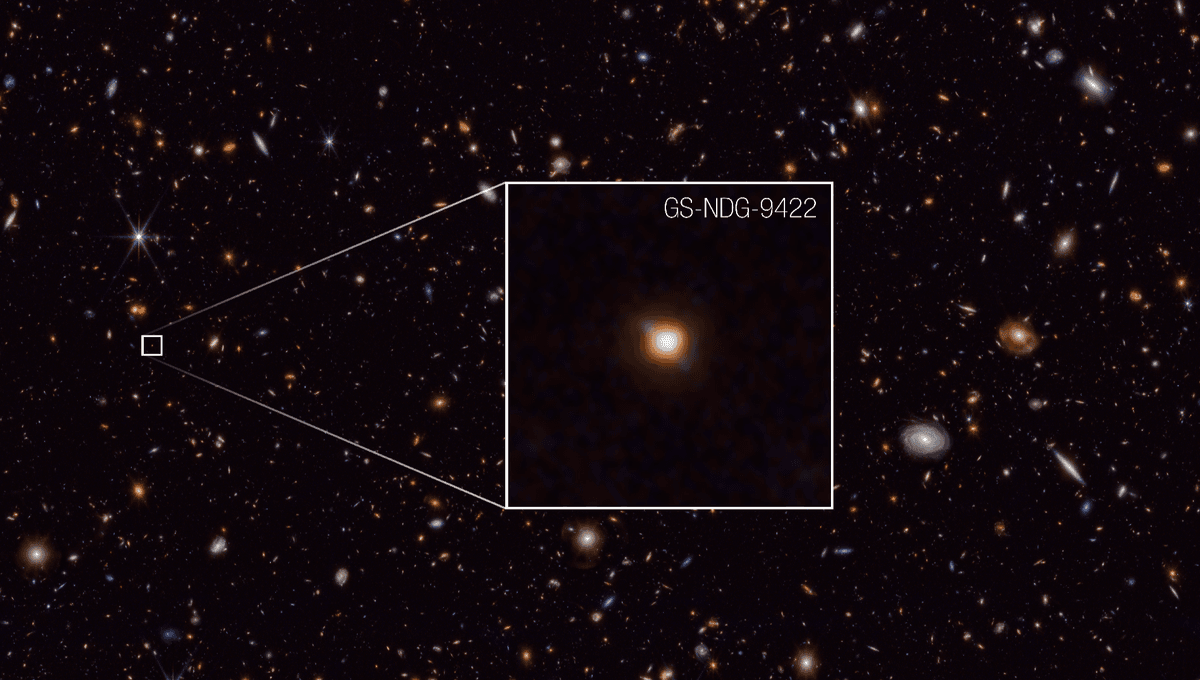
Galaxy GS-NDG-9422 might not have a catchy name or look that impressive, but it has the potential to be revolutionary in our understanding of galaxy evolution. It has an odd light signature – it seems that its gas is shining a lot brighter than its stars. This peculiar feature might open a window onto a much bigger mystery: the first generation of stars.
These stars – known as Population III because astronomers count backward – are at this point hypothetical. They did not have any elements other than hydrogen and helium, and they were enormous, thousands of times the mass of our Sun. They burned through their fuel fast – and that’s why we have not seen them yet. They went supernova before we could spot them. They also run very hot, and this is the connection to GS-NDG-9422.
This galaxy doesn’t seem to possess the fabled population III stars as there is too much chemical complexity, but it has this extremely hot gas. The team couldn’t make sense of this gas by using the population of stars we see today. However, if the stars were hotter, then they were able to explain the peculiar light coming from the galaxy.
A typical hot, massive star in the local universe today will have a surface temperature between 40,000 to 50,000 °C (70,000 to 90,000 °F), which is around 8/9 times hotter than the Sun. But for galaxy GS-NDG-9422, these massive stars are running hotter, showcasing a temperature of over 80,000 °C (140,000 °F). The bright, hot light from the stars is heating up the gas in an unusual way.
“It looks like these stars must be much hotter and more massive than what we see in the local universe, which makes sense because the early universe was a very different environment,” study co-author Harley Katz, from the University of Oxford and the University of Chicago, said in a statement.
Gas outshining stars is an expected feature of galaxies hosting Population III stars. Finding it in a galaxy without these stars suggests a potential mid-step from the primordial early galaxies and the galaxies we have seen so far. The team is now looking for more examples of these galaxies.
The research paper is published in the journal Monthly Notices of the Royal Astronomical Society.
Source Link: Uniquely Shining Galaxy May Be Missing Link To The Universe's Unseen First Stars